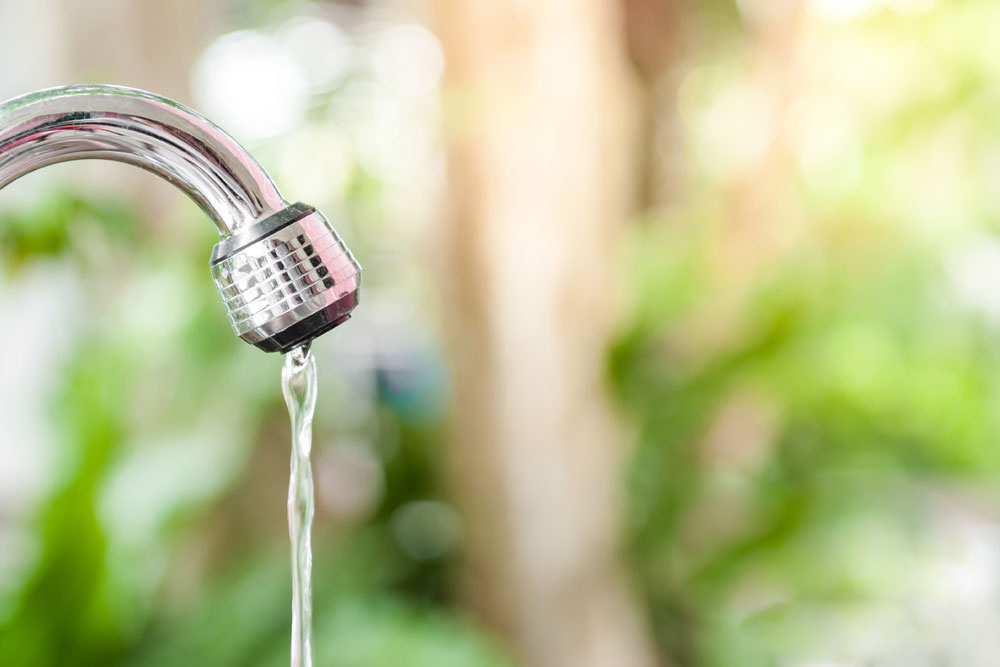The article directly below involving 9 Reasons for Low Water Pressure in Your House is really entertaining. You should take a peek.

Low tide stress in your home can be a frustrating problem, impacting every little thing from bathing to cleaning recipes. If you're experiencing weak water flow, there are a number of possible causes and solutions to discover. In this overview, we'll talk about typical reasons for low tide pressure and useful actions to address the concern efficiently.
Intro to Low Water Stress
Low water stress happens when the circulation of water from your faucets, showers, and various other fixtures is weaker than typical. This can make everyday jobs extra difficult and much less efficient. Recognizing the reasons for low water pressure is crucial to discovering the ideal service.
Typical Sources Of Low Water Pressure
Faulty Pressure Regulators
Pressure regulatory authorities are responsible for preserving consistent water stress in your home. If they malfunction, it can result in low water stress or unequal flow throughout your house.
Metropolitan Water Supply Issues
Sometimes, the trouble exists outside your home. Metropolitan water system concerns, such as main line leaks or maintenance work, can momentarily decrease water pressure in your area.
Pipe Obstructions
Over time, pipelines can become clogged with mineral deposits, debris, or particles, restricting the circulation of water. This is a common problem in older homes with galvanized steel pipelines.
Corrosion
Rust within pipes can lead to leaks and decreased water pressure. Rust buildup can constrict water circulation, especially in maturing plumbing systems.
Just How to Identify Low Water Stress
Inspecting Pipelines
Inspect noticeable pipes for indicators of leaks, corrosion, or clogs. Take notice of any type of uncommon audios, such as banging or rattling pipelines, which might show issues within the plumbing system.
Consulting with a Plumber
If you're not able to pinpoint the source of low water stress, take into consideration employing a professional plumber to conduct a comprehensive examination. They can determine underlying concerns and recommend ideal options.
Examining Taps and Components
Beginning by evaluating the water pressure at different faucets and fixtures throughout your home. If the issue is isolated to specific locations, it might suggest local problems.
Do It Yourself Solutions to Fix Low Tide Pressure
Flushing Hot Water Heater
Sediment build-up in the water heater can restrict flow and decrease efficiency. Purging the tank periodically assists get rid of sediment and preserve ideal efficiency.
Examining Pressure Regulatory Authority
Make certain that the stress regulator is working properly. Readjusting or replacing the regulatory authority can aid restore appropriate water pressure throughout your home.
Cleaning Aerators and Showerheads
Natural resources can gather in aerators and showerheads, minimizing water circulation. Eliminate and clean up these elements frequently to enhance water pressure.
Clearing Up Clogs in Piping
For small blockages, try utilizing a plumbing snake or chemical drain cleaner to clear blockages in pipelines. Beware when utilizing chemicals and comply with safety standards.
When to Call a Professional Plumber
If do it yourself initiatives stop working to solve the issue or if you presume considerable plumbing troubles, it's ideal to seek help from a licensed plumber. They have the experience and devices to address complicated problems safely and successfully.
Safety Nets to Keep Water Stress
Setting Up a Pressure Booster
Think about installing a stress booster pump to boost water pressure in locations with continually reduced circulation. This can be specifically valuable for multi-story homes or properties with high-demand fixtures.
Tracking Water Usage
Be mindful of water use habits and avoid overtaxing the plumbing system. Easy adjustments, such as astonishing showers and laundry loads, can assist keep sufficient water pressure.
Routine Maintenance
Arrange regular maintenance for your plumbing system to avoid concerns such as deterioration, leakages, and obstructions. Dealing with small problems early can aid stay clear of even more substantial fixings later on.
Conclusion
Handling low water stress can be discouraging, but identifying the underlying causes and executing ideal remedies can recover optimal flow throughout your home. Whether it's cleaning up aerators, inspecting pipelines, or seeking advice from a plumber, taking proactive actions can guarantee a steady supply of water for your day-to-day needs.
FOUR WAYS TO FIX LOW WATER PRESSURE NOW
Turning on a shower or faucet only to find the water comes out in a sad, slow drizzle is never a good feeling. How exactly are you supposed to wash a pan or take a quick shower when it takes 10 minutes just to rinse off a little soap? The good news is that when your water pressure is bad, there's always a cause: typically one that can be easily fixed. Here are some of the most common causes of low pressure and what you can do to fix the issue:
DEBRIS AND MINERAL DEPOSIT BUILDUPS
If you notice low water pressure from just one or two of the fixtures in your house, the problem likely has to do with debris buildup. Water is full of minerals and other debris, all of which can accumulate in your pipes and on your fixtures. This can cause a blockage that affects how much water flows through. To fix this, try filling a small plastic bag with white vinegar, and use a rubber band to hang it around your showerhead or faucet. Let the head of the fixture soak for a few hours, and the vinegar should loosen the deposits.
WATER LEAKS
Leaks are another common cause of low water pressure. If water is flowing out of your plumbing through a hole or crack before it can reach your fixture, the pressure coming out of the faucet or showerhead will be lower. A plumbing professional is your best bet for finding and repairing a leak in your water supply pipes.
Leaks are another common cause of low water pressure. If water is flowing out of your plumbing through a hole or crack before it can reach your fixture, the pressure coming out of the faucet or showerhead will be lower. A plumbing professional is your best bet for finding and repairing a leak in your water supply pipes.
A VALVE ISSUE
If you have low water pressure throughout your home, check your main shut-off valve to make sure it's completely open. You may also want to see if there's a pressure-reducing valve installed. If there is, have a plumber help you adjust the settings to get the pressure you're looking for.
OTHERS USING WATER
Believe it or not, your low water pressure could be caused by your neighbors. If you notice low pressure at certain times of day, it may be because you and the people living next to you have similar schedules - when everyone is showering at the same time, the pressure will be lower in every home. Low pressure throughout the neighborhood may also be caused by an issue with your municipal water supply. If that's the case, call the supplier to see if they're working on the issue.
https://www.rotorooter.com/blog/water-leaking/low-water-pressure-fixes/

As a fervent person who reads about Low Water Pressure in the House?, I thought sharing that piece of content was worth the trouble. For those who appreciated our blog entry plz be sure to share it. Bless you for being here. Come back soon.
Call Today